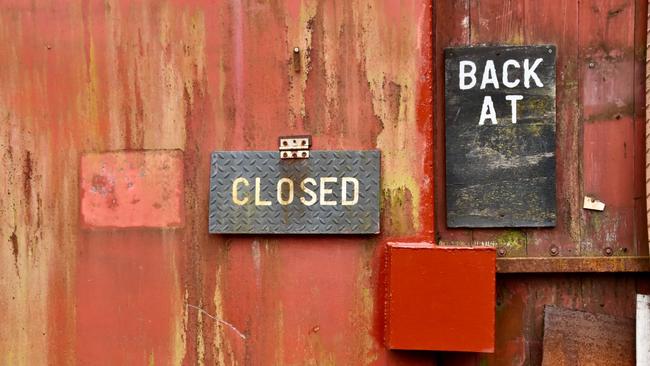BHP shuts nickel operations as oversupply ends turnaround tale
BHP has confirmed the long rumoured suspension of its Nickel West division, citing a supply glut not expected to clear for years.

Stockhead
Don't miss out on the headlines from Stockhead. Followed categories will be added to My News.
The big kahuna of Aussie nickel, BHP Nickel West, finally confirms plans to suspend operations
Supply glut from Indonesia has resulted in US$300mn loss in FY24, with market deficit not expected until at least the late 2020s
BHP to review decision in February 2027, in hope EV narrative brings pushes demand ahead of supply
BHP (ASX:BHP) ended months of speculation by announcing the closure of its Nickel West division in WA, a business which produces 80,000t of the battery and steelmaking metal and counts as one of the largest suppliers of the commodity outside Indonesia, China and Russia.
It will mean Australia's nickel operations will be whittled down to just IGO (ASX:IGO) Nova operations and Glencore's Murrin Murrin mine, reducing production in Australia from over 150,000t last year to around 60,000t.
Since the start of 2024 a collapse in LME nickel prices prompted by a wave of supply from Indonesian producers, many backed by Chinese steel and battery makers, has seen a host of Australian nickel mines shut down.
They include First Quantum and POSCO's Ravensthorpe, Wyloo's Kambalda operations, Panoramic's Savannah and the Avebury mine in Tasmania, while IGO is running its Forrestania mines towards the end of their lives and paused construction of its next major nickel development Odysseus.
BHP's is the big one though, with the world's biggest miner shutting down its Kalgoorlie smelter, Mt Keith and Leinster mines and Kwinana refinery, as well as pausing construction of the $1.7 billion West Musgrave development acquired in a $9.6bn takeover of OZ Minerals that also netted its South Australian copper mines.
The division, which employed over 3000 people in WA, is set to post a US$300 million earnings loss for FY24, with a US$300m ($450m) impairment expected to be added to a US$3.5bn pre-tax impairment announced at the miner's half-year results in February.
BHP claims to have reported negative cash flow at Nickel West every year since FY2020, when it began a US$3bn ($4.4bn) capital program to retool the business to supply the electric vehicle market.
But it will spend around US$300m a year following the transition to care and maintenance to maintain exploration, and keep its assets in good nick, with suspension to take place in October and be completed by December 2024.
BHP plans to review the restart of the business in February 2027.
That is around the time that tax breaks for downstream refining announced in the most recent federal budget are set to come in. The decision comes the same day The West Australian reported IGO and Andrew Forrest-backed Wyloo had pulled the pin on a nickel sulphate plant planned by the miners in Kwinina, near BHP's own nickel refinery.
1600 people in 'frontline' roles will be offered roles elsewhere in BHP, which also announced a $20m fund for traditional owners and suppliers and support for 30 apprenticeships in the Goldfields.
Praying on market turnaround
Nickel West was poised for closure in 2014 when a sale process collapsed, but ran as a non-core business and kind of test lab under former asset president Eddy Haegel until May 2019, when the decision was made to reinstate it as a core asset.
Back then nickel was trading for less than US$12,000/t. While it's fetching more today, the market has been dramatically altered by cost inflation and a flood of Indonesian producers at the bottom end of the cost curve.
Speaking to media on Thursday afternoon, BHP President Australia Geraldine Slattery said the company remains hopeful a deficit will emerge if demand from electrification can outpace the rise of supply from Indonesian producers from 2028 on and into the 2030s.
"I think what we would have to see is a market outlook where you had a sustained deficit that would support a confident investment return," she said.
"As we're seeing at the moment, there's a level of flux in the market because of the supply glut and we see different operators curtailing.
"We do have optimism from the latter part of this decade through the '30s, that that (deficit) will play out.
"A lot has to happen between now and then, and that's why we put a line in the sand of February 2027 to make a call on that."
She said BHP had been surprised at the growth in nickel supply in recent years, with a surplus expected to last for another three years.
"I think we've been clear that the basis of our decision today is relative to the market outlook through to the end of the decade," she said.
BHP has not considered the divestment of Nickel West, or any individual parts of it at the current moment, Slattery said. BHP is keen to maintain the option to revive the integrated supply chain.
"We are optimistic on the market outlook from that point forward, based on the transport electrification (thematic)," Slattery said.
"Now, of course, there's uncertainty with that, but we've got sufficient conviction to maintain investment in the option of bringing the Nickel West business back into operation.
"That's why we've been very specific about the temporary suspension and the investment in exploration through to maintenance and integrity of the facilities.
"So there is uncertainty for sure, but we're we've got conviction on the market beyond the late '20s."
Subdued response from Canberra
Nickel prices fell from over US$30,000/t at the end of 2022 to US$16,891/t today, with BHP CEO Mike Henry previously stating the company needed US$20,000/t pricing to break even.
That has come amid a rise in production from Indonesia, which has lifted its share of nickel output from nickel laterite sources from around 3% in 2015 to ~55% today.
But it's also bridged a gap between class 1 and 2 nickel, the latter needed for battery production, using new generation high pressure acid leach and Chinese technology that can convert nickel pig iron to nickel matte for battery grade supply.
A number of nickel plants in Indonesia also enjoy long-term tax holidays, which enable many miners to operate lower on the cost curve.
Demand for nickel in EV batteries has also been dulled by shifting battery chemistries.
Cheaper but lower range lithium-iron-phosphate batteries, which don't use nickel in their cathodes, are becoming a major force in China as consumers chase more affordable car models.
The sudden closure of WA nickel mines and collapse in lithium prices prompted crisis talks for both sectors of the industries with the WA and Commonwealth Governments.
That drew limited royalty relief from the State, lobbying for a so-called 'green premium' for Australian nickel from Federal Resources Minister Madeleine King and eventually the announcement of a production tax credit for downstream refining of critical minerals to kick in from 2027.
Slattery said BHP made no requests for support from politicians, whose chosen actions have been unable to withhold the nickel rout.
Minister King yesterday blamed the price drop from the end of 2022 for the decision by BHP, saying the Government welcomed it commitments to 'support local supply chains and pay royalities to First Nations communities'.
"The Albanese Government worked with BHP and the broader nickel sector on policy responses that would support ongoing Australian nickel production," she said.
"We added nickel to the critical minerals list in February, making nickel projects eligible for consideration under the $4 billion critical minerals facility. We also announced the critical minerals production tax incentive in the May Budget.
"However, it is clear that the scale of commercial difficulties Nickel West faces due to developments in global nickel markets has led to the temporary suspension announced by BHP today."
Slattery said BHP was hopeful there would in the future be a premium realised for low emissions nickel production, not recognised by customers today, and that BHP did see a case where incremental investment beyond Indonesia would be needed to supply a growing EV market.
Bought as part of the $9.2bn takeover of Western Mining Corporation in 2005 – largely prized for the Olympic Dam copper-gold-uranium mine in South Australia – Nickel West was briefly the biggest earner in BHP's house after prices hit a then record of over US$50,000/t in 2007.
The run was short-lived, with the metal's volatility a hallmark since WMC founded the nickel business in Kambalda in 1966, building a concentrator, smelter and refinery in a handful of years to leverage a boom caused by arms sales for the Vietnam War.
Originally published as BHP shuts nickel operations as oversupply ends turnaround tale


